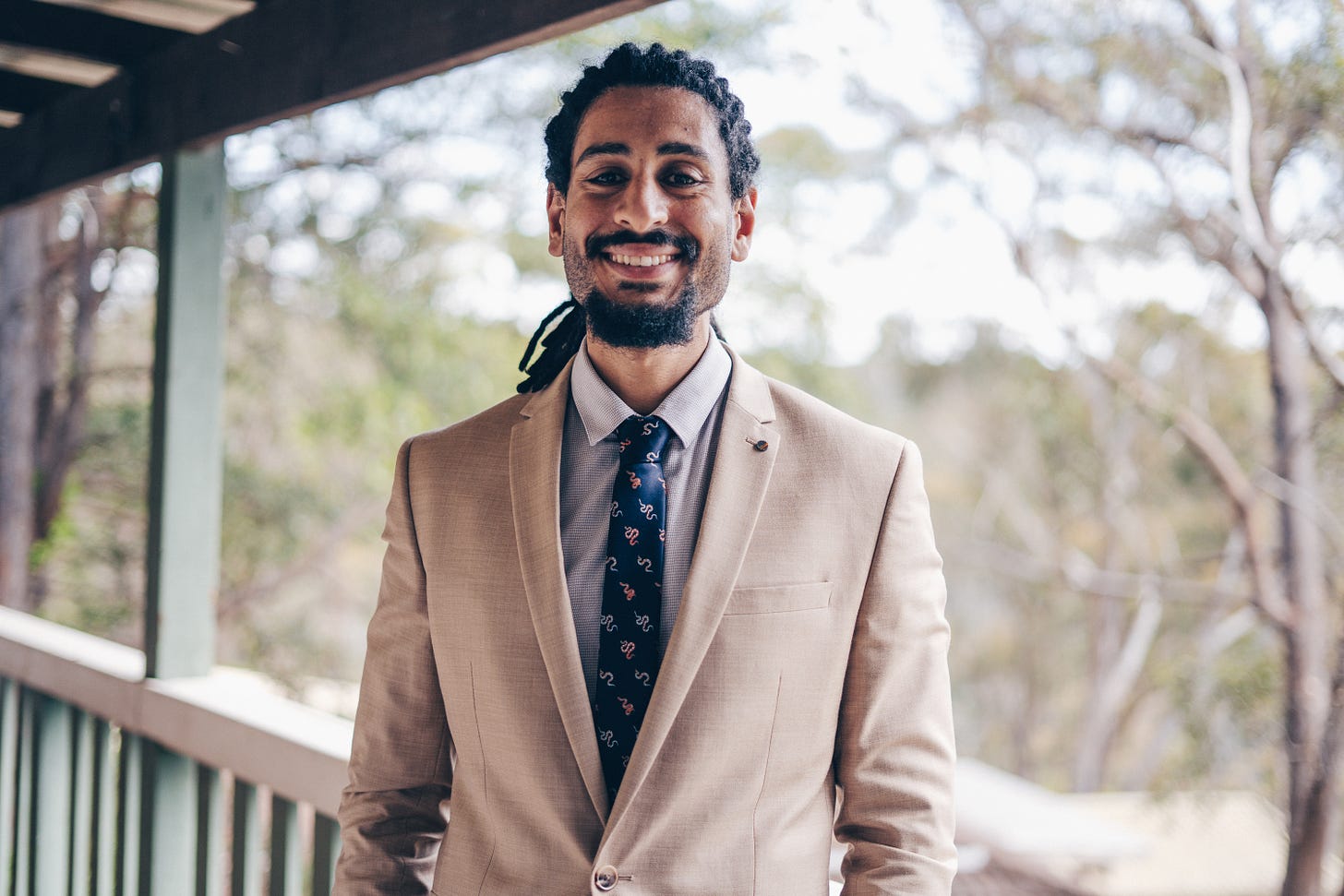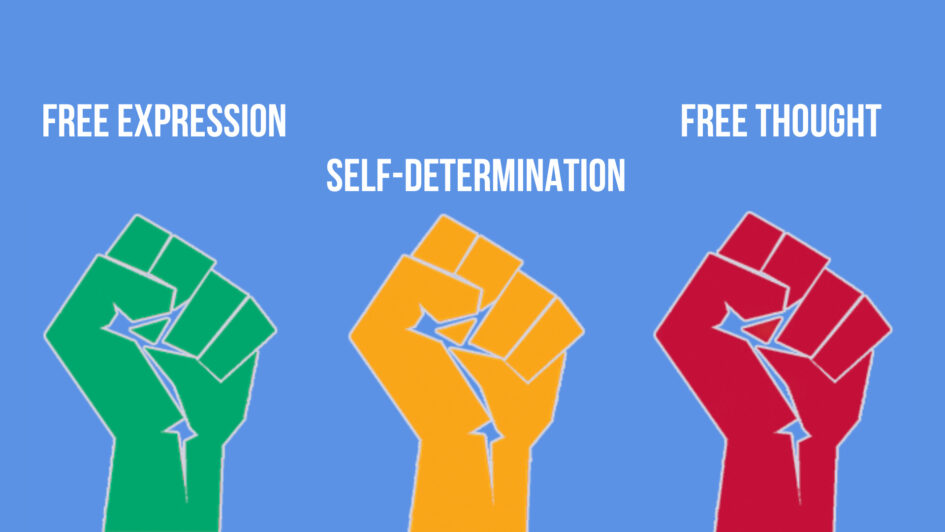Rebekah Barnett: Dystopian Down Under
“It’s inconsistent with human rights.”
That’s how human rights lawyer Peter Fam describes the Australian Government’s proposed new legislation to combat mis- and disinformation.
The bill outlines new powers that will allow the Australian Communications and Media Authority (ACMA) to create and enforce new industry standards for digital platforms, to compel platforms share information with ACMA, and to compel them to implement stronger systems and processes for handling of mis- and disinformation.
In a joint submission to the government with Australians for Science and Freedom (ASF), Fam describes the new bill as, “a poorly drafted piece of proposed legislation” that poses a threat to the rights of free expression, self-determination, and freedom of thought, conscience and religion.
“Do we want a Government department to have the power to impose civil and criminal penalties on users of the internet if they publish something that the Government doesn’t like?” asks Fam, of Sydney law firm Maat’s Method.
“That is what the ACMA bill would allow, and we think it proposes an unacceptable and contemptible breach of the right to freedom of speech and freedom of expression.”

Fam and ASF argue that the bill places unacceptable restrictions on individuals posting content online, while excusing government and the press from the same standards. This is likely to result in a chilling effect on online speech, says Fam.
Moreover, the vague definitions offered in the bill for ‘misinformation’, ‘disinformation’ and ‘serious harm’ makes enforcement of the proposed laws inherently subjective. This will inevitably end up in the courts, to the benefit of lawyers and the powerful, but to the detriment of everyone else.
“Only people with enough time, resources and energy will be able to contest ACMA’s decisions in court. It’s going to clog up the legal system with lots of cases arguing over what these terms mean,” says Fam.
As this bill does not exist in a vaccuum, it’s important to understand that Australia does not have strong protections for human rights, Fam explains. “There is a serious lack of statutory and constitutional protection for freedom of speech in Australia – in fact, there is a general dearth of human rights protections.”
Fam draws a comparison with the US constitution. “The main difference between US and Australian constitutions is that the US constitution enshrines human rights front and centre. The Australian constitution isn’t designed to protect our rights, it’s designed to implement a structure of governance.”
“It is a matter of context. The US constitution was drawn up in the context of a revolution. Our system of governance was drawn up in the context of a prison colony; prison officers dealing with convicts. In many ways, our system of legislation and governance reflects that.”
That the rights of Australians are not already strongly protected in law means that Australians ought to be very careful about allowing the implementation of new legislation that poses a threat to those rights, warns Fam.
“There is no need to allow Government even greater ability to impose on our rights and freedoms than they already have. If we do, we may find ourselves unable to challenge them.”
The submission makes 14 recommendations which are included at the end of this post. Fam and ASF conclude in strong terms,
“As it stands, we fundamentally and vehemently oppose this Bill. If such law is allowed to pass, it will not only signal the death knell of the internet as a free marketplace of ideas in Australia, but it will signal to Australian citizens, and to citizens of the globe, that the Australian Government seeks total control of the dissemination of information within its borders, and that such control is more valuable to that Government than the individual rights of its citizenry. That would be a dark day for democracy indeed, were such a thing to pass.”
What can you do?
Share this sumbmission to educate people about the proposed misinformation laws. (PDF version attached at the end of this post).
You can also share this article I wrote for Umbrella News outlining concerns raised by a media academic and Senator Alex Antic.
Have your say. Anyone can make a submission to the government about the bill. The deadline has been extended to 20 August 2023.
Recommendations per Peter Fam and Australians for Science and Freedom
1. Specific particularisation of why the various powers granted to ACMA by the Bill are necessary for the purposes outlined in Article 19 of the ICCPR, including reasons as to why less onerous approaches are not sufficient.
2. The Department and the AHRC should collaborate to ensure, as per the AHRC’s statutory function, that the Bill is compatible with Australia’s human rights obligations at international law;
3. The Department should immediately release the Statement of Compatibility for public scrutiny, and confirm the establishment of the Parliamentary Joint Committee on Human Rights with respect to the Bill;
4. Stronger, proactive protections for the implied right to freedom of political communication;
5. Include Guidance Principles within the Bill that make clear the importance of freedom of speech and expression, and which force ACMA to acknowledge these rights when making decisions;
6. Follow the DIGI Code’s lead in ensuring that content producers should not be compelled by Governments or other parties to remove content solely on the basis of its alleged falsity if the content would not otherwise be unlawful.
7. Amend the definition of ‘digital service’ to clarify and ensure that an individual who posts on a social media platform is outside of the scope of the Bill’s operation.
8. The current definitions of ‘Misinformation’, ‘Disinformation’ and ‘Serious Harm’ within the Bill are unworkable. Given that the Bill rests upon these definitions, this renders the Bill itself unworkable. The definitions should be amended such that they are not contingent on the identification of “truth”, but are rather aimed at capturing content that is of a criminal character, or which constitutes a criminal offence.
9. The drafters of the Bill must be clear in their intentions. At present, the Guidance Note and the Fact Sheet say one thing whilst the functionality of the Bill suggests something else. This will result in complex and costly litigation;
10. If the Bill is to be allowed to pass, stronger protections for free speech must be incorporated into it, which would require a drastic re-drafting of the Bill. Anything less should not be allowed, because freedom of speech and expression are such fundamental rights in our democracy.
11. Stronger checks and balances need to be incorporated into the Bill such that ACMA is not allowed unchecked, unilateral, unchallenged power to create codes, rules and standards;
12. Statutory mechanisms for review and challenge of ACMA decisions must be incorporated into the Bill, with external and independent oversight that is timely and efficient;
13. ACMA’s discretion should be limited and couched within clear parameters for reasonable assessment by a Court;
14. The Bill must include a Clause excepting the provision of any information that would render the provider in breach of Privacy legislation.
Rebekah Barnett reports from Western Australia. She holds a BA Comms from the University of Western Australia and volunteers for Jab Injuries Australia. When it comes to a new generation of journalists born out of this difficult time in our history, she is one of the brightest stars in the firmament. You can follow her work and support Australian independent journalism with a paid subscription or one off donation via her Substack page Dystopian Down Under.


